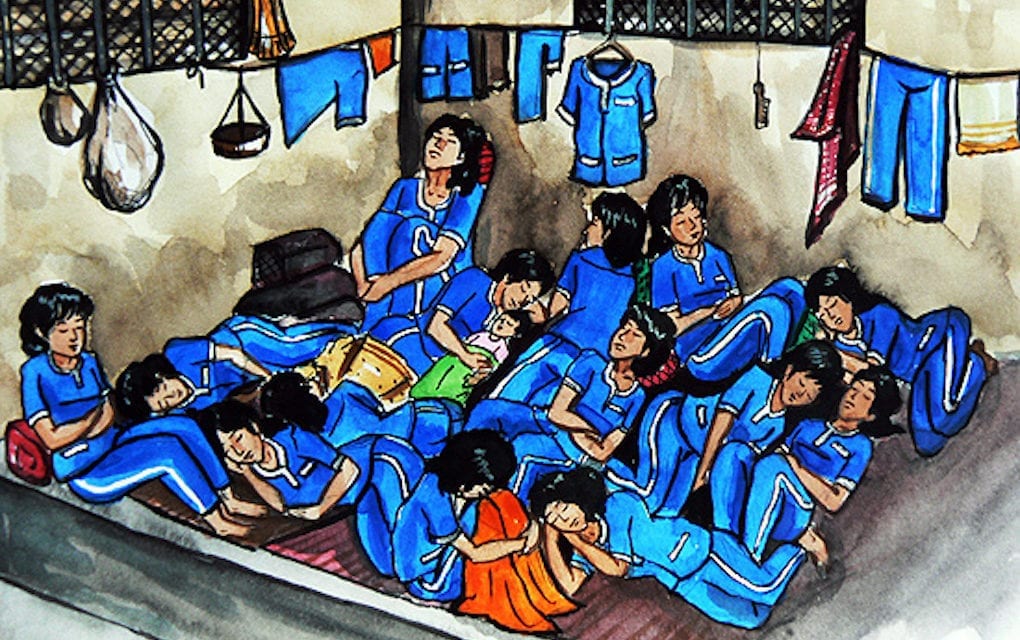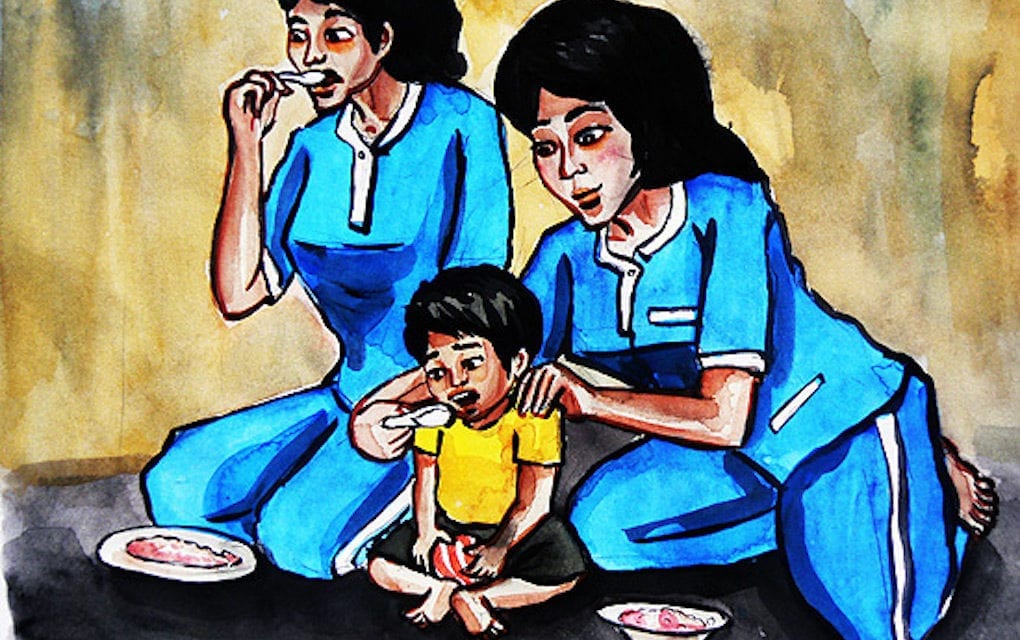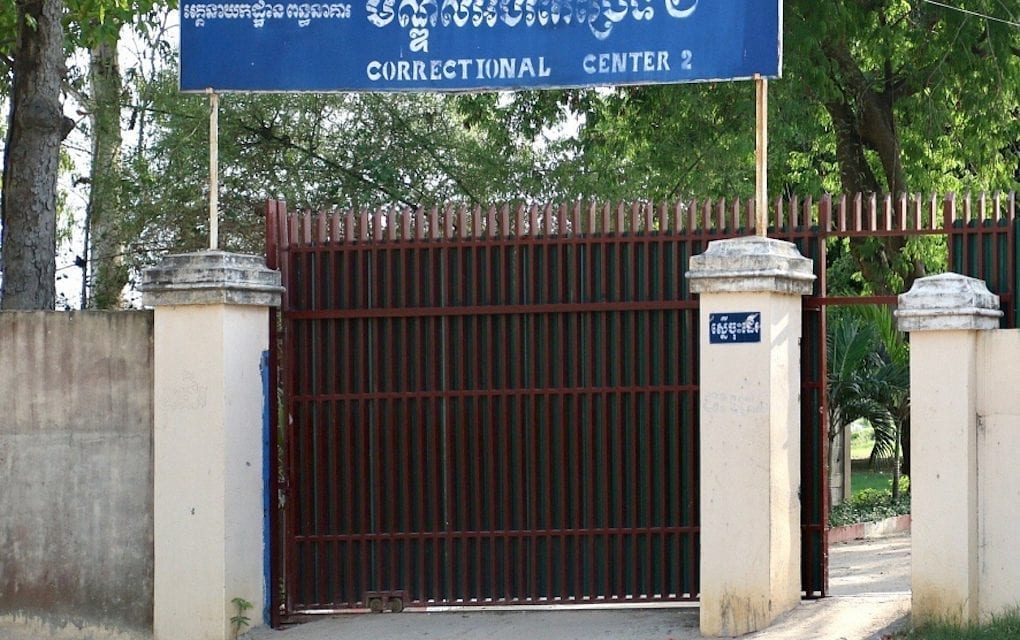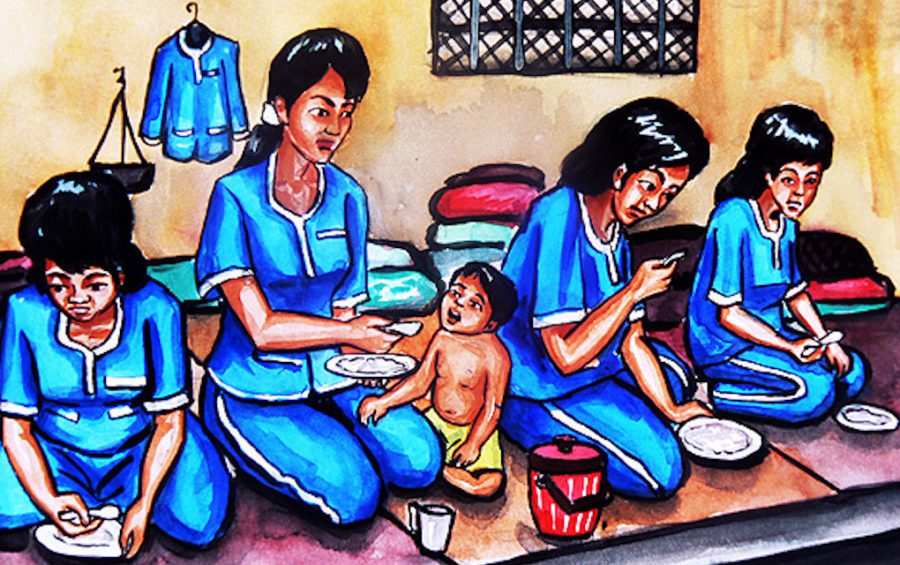The government’s human rights committee was “unlikely” to further investigate anyone responsible for the death of a 5-month-old baby who was living with her mother in prison, since the committee had already determined that the child died of “poor health,” its spokesman said.
Meanwhile, the head of the National Pediatric Hospital — which had treated the baby girl twice before she died last month in a different public hospital — raised questions about the child’s care while living with her mother in Correctional Center 2 (CC2) at Phnom Penh’s Prey Sar prison.
Human rights group Licadho this week said the infant died at Khmer-Soviet Friendship Hospital on January 26 from pneumonia and severe malnutrition, according to an autopsy.
Licadho called on the government to “conduct a full investigation into the child’s death,” establish clear procedural guidelines for taking children and pregnant women to hospitals, and prioritize bail hearings for pregnant women and mothers with young children.
Chin Malin, spokesman for the governmental Cambodia Human Rights Committee (CHRC), said vulnerable detainees’ bail releases were already prioritized and based on the severity of the alleged offenses and judges’ discretion.
“It is nothing new and the authorities have implemented through existing legal regulations,” Malin said.
The deceased baby’s mother, whose name and contact information was withheld by Licadho to protect her privacy, was arrested and provisionally detained in mid-2019 for possessing a bag of methamphetamine worth $2.50. She was eight months pregnant at the time.
CC2, the only prison in Cambodia designated for women and children detainees, currently holds 1,850 people — more than five times its official capacity, according to Licadho.

While CHRC said it had provided a pro bono attorney to help the child’s mother secure bail, Malin said the committee did not plan to investigate any person or institution’s culpability for the child’s death.
“It’s unlikely that there will be further investigation to find those who are responsible because we already investigated, and the baby’s death resulted from a poor health condition from which she couldn’t be saved,” Malin told VOD on Thursday.
“The prison had paid attention by sending her to the hospital multiple times,” he said.
“Regarding the legal procedures, let’s allow the lawyer to work based on the court procedures,” added the official, who is also the spokesman for the Justice Ministry.
Malin said the lawyer appointed by CHRC met with the woman on Thursday morning and was working to help her secure a release on bail. He declined to provide the lawyer’s name to VOD.
The committee earlier acknowledged that the woman had not received enough information about her legal defense rights and was without a defense attorney, according to a statement issued on Wednesday.
CHRC officials had questioned prison authorities, prisoners and the child’s mother during their earlier investigation into the baby’s death, the statement said.
A Licadho spokesman welcomed CHRC’s offer of a lawyer, but said the woman should have been informed of her legal rights at an earlier stage in her case.
‘The Smaller the Baby, the More Danger’
About a week before the 5-month-old girl died, she sustained an injury that caused a thigh bone fracture — the initial reason prison medical staff brought her to Khmer-Soviet hospital for treatment, Licadho said. The group added that it was unclear how the girl was injured.
Malin suggested that the injury may have resulted from the mother’s carelessness, and added that the fracture did not appear to be the result of violence.
According to Licadho, Khmer-Soviet staff identified the fracture through an x-ray, but then transferred the baby to the National Pediatric Hospital because the staff said they didn’t have the expertise to treat such a young child.
Dr. Nhib Angkearbos, director of the National Pediatric Hospital, told VOD on Thursday that during the child and mother’s first visit to the children’s hospital — a week before the baby died — doctors wrapped her fractured thigh in a hard cast and prescribed vitamins, because they observed signs of malnutrition.
However, there were no signs of a lung infection at the time, Angkearbos said.
“There is no [pneumonia]. There is only the problem of a broken bone,” he said.
The girl was then discharged back to the prison, according to Angkearbos.
Licadho said National Pediatric Hospital staff had refused to keep the girl overnight for observation as CC2 staff had requested. Angkearbos told VOD earlier this week that the hospital’s 400 beds are generally completely occupied.

During the following week, the baby had a fever and regular cough, and prison staff brought her and her mother back to the children’s hospital, Licadho said, adding that a doctor saw them briefly before scheduling a follow-up appointment for weeks later.
Angkearbos, however, said that during the child’s second visit to the children’s hospital, staff had examined the baby and found nothing wrong other than the thigh bone fracture.
They provided vitamins and painkillers and discharged the girl, as the bone injury didn’t require her to stay in the hospital, its director said.
According to Licadho, the mother said that she had told a doctor that she ran out of the medicine prescribed earlier for her daughter, but staff did not provide more.
By January 25, as the girl was “fighting to breathe,” Licadho said, CC2 staff brought her and her mother to Khmer-Soviet hospital. Staff cleared and x-rayed the child’s lungs and she stayed overnight.
The next morning — after again struggling to breathe, then receiving CPR, being placed in an incubator and given oxygen — the 5-month-old died.
Angkearbos said he had heard that the child had a health issue and was taken to Khmer-Soviet, but he did not know the cause of death.
Asked where young children living in prison with their mothers are usually sent when they have a health problem, Angkearbos said they’d normally be brought to his children’s hospital, and he wasn’t sure why the 5-month-old girl was brought to Khmer-Soviet instead.
For small babies, health conditions can change fast, the doctor added.
“In just two or three days, an illness can cause a problem,” he said. “The smaller the baby is, it’s like a young leaf on a tree; it is easily in danger. The smaller the baby, the more danger it will be in.”
Raising questions about hygiene in the prison, the doctor said children could also be at risk of infections while living inside, the doctor said.
Dr. Ngy Meng, Khmer-Soviet hospital’s director, said he had heard the baby was earlier sent to the National Pediatric Hospital and declined further comment, referring questions to the children’s hospital.
Khmer-Soviet’s deputy director Dr. Chhoeung Yav Yen also declined to comment, saying he was unfamiliar with the case.

Heng Samnang, CC2’s deputy chief of operations, mostly confirmed Licadho’s account of the child’s hospital visits and death from January 19 to 26, except that Samnang said the hospital provided the mother with medicine for the child on January 23.
CC2 director’s Khlot Dara and officials at the Interior Ministry’s prisons department could not be reached for comment.
Be Tea Leng, deputy general director of the prisons department, had earlier told VOD that women prisoners receive 3,500 riel worth of food per day, while children under 3 years old are provided food valued at 1,750 riel per day.
Licado’s monitoring manager Am Sam Ath urged officials to conduct a thorough investigation into the 5-month-old girl’s death, including determining the cause of her bone fracture.
But Sam Ath said the government should not stop there. He called for more cooperation between hospitals and prisons, as well as standard guidelines that could prevent similar cases from happening in the future.
“We want to have a policy or regular practice,” he said. “We don’t want to deal with it case-by-case.”













